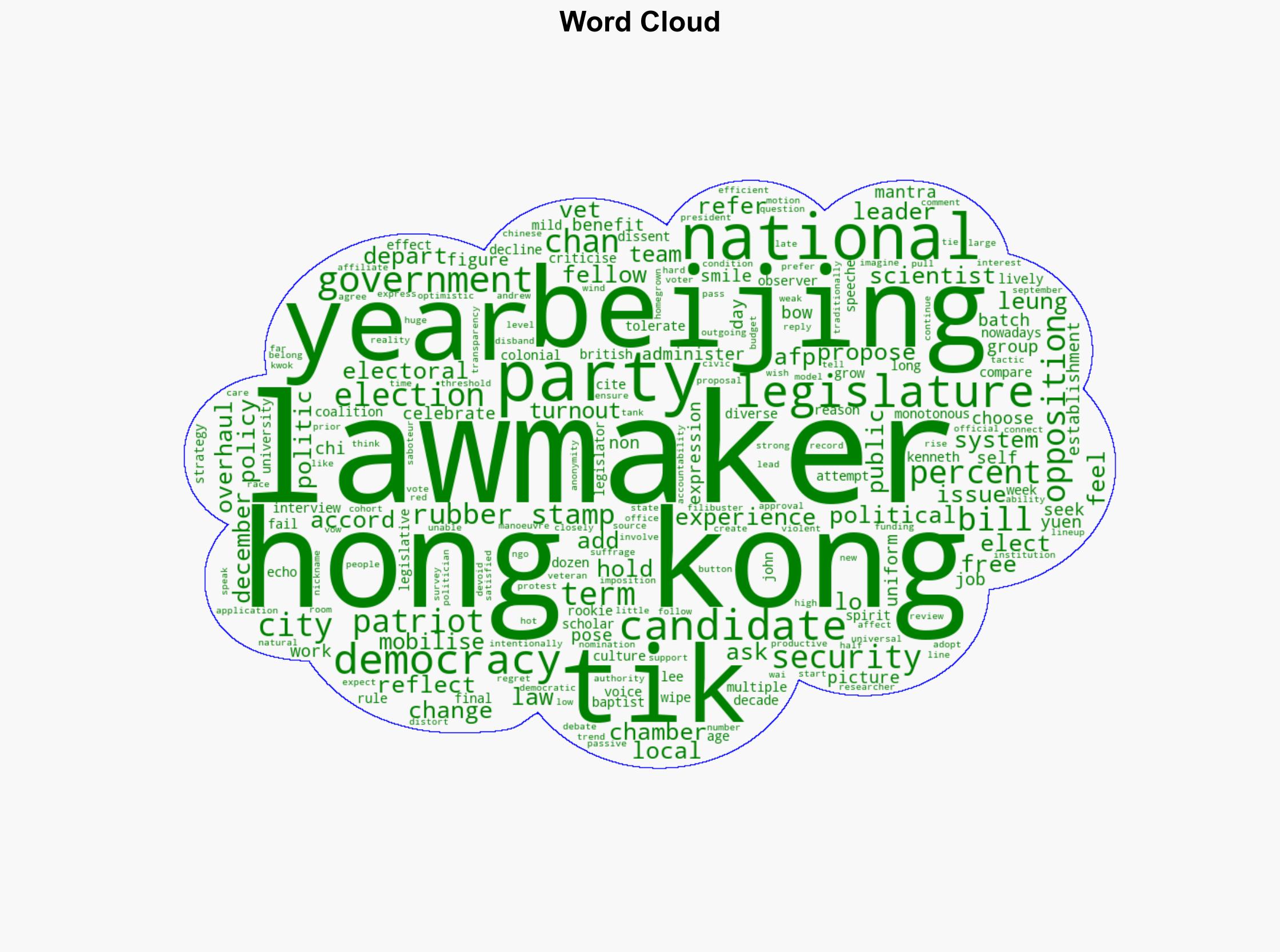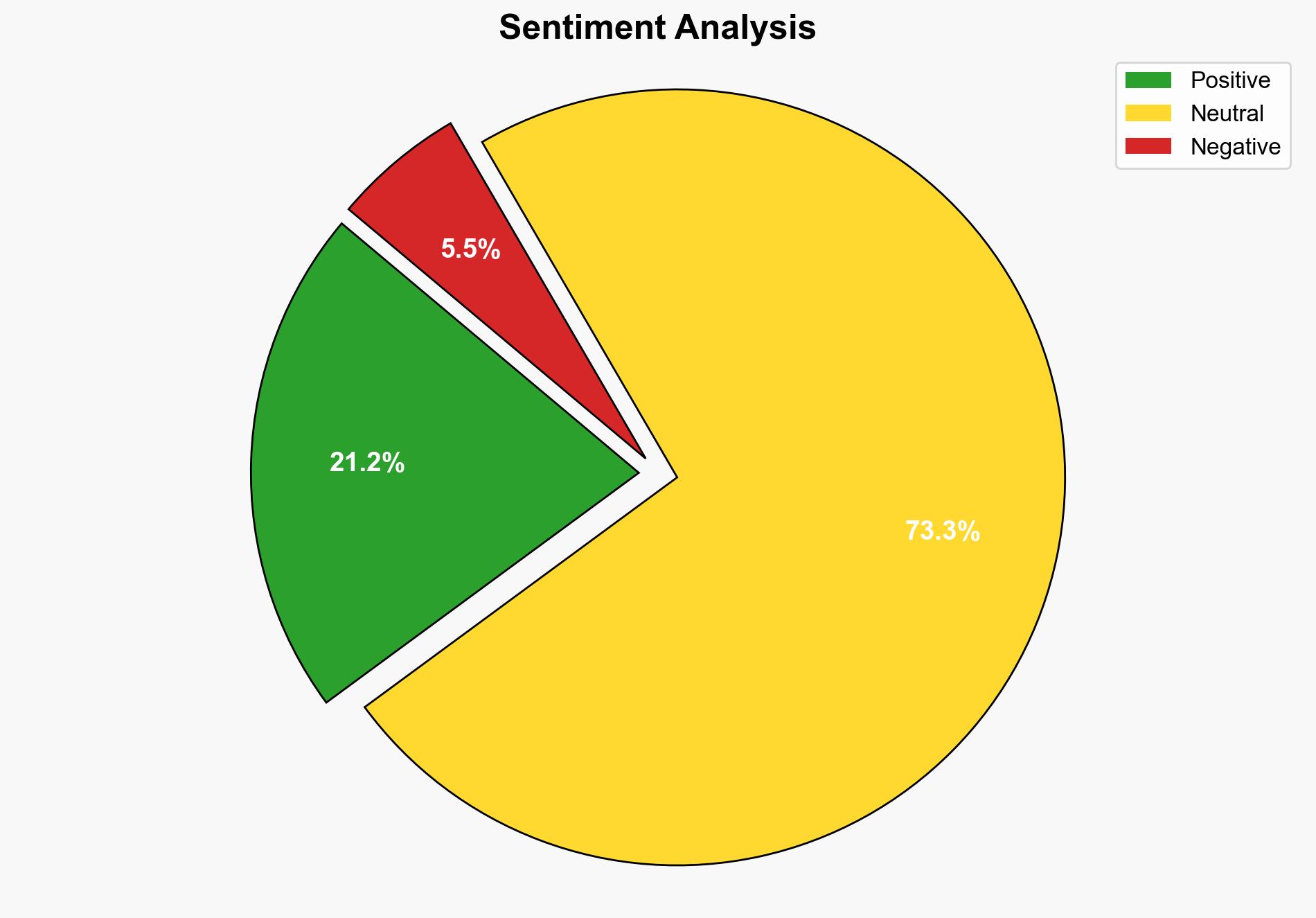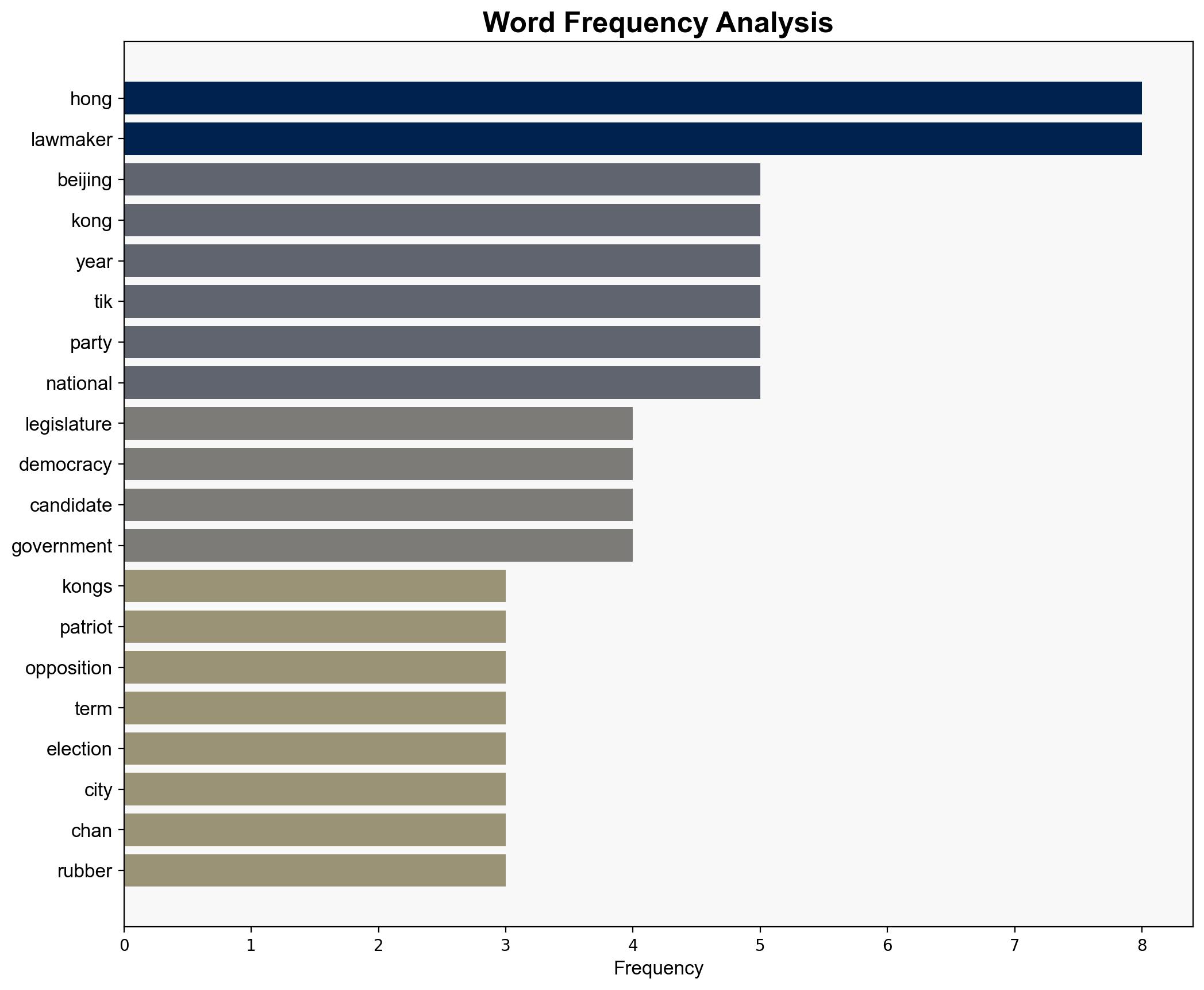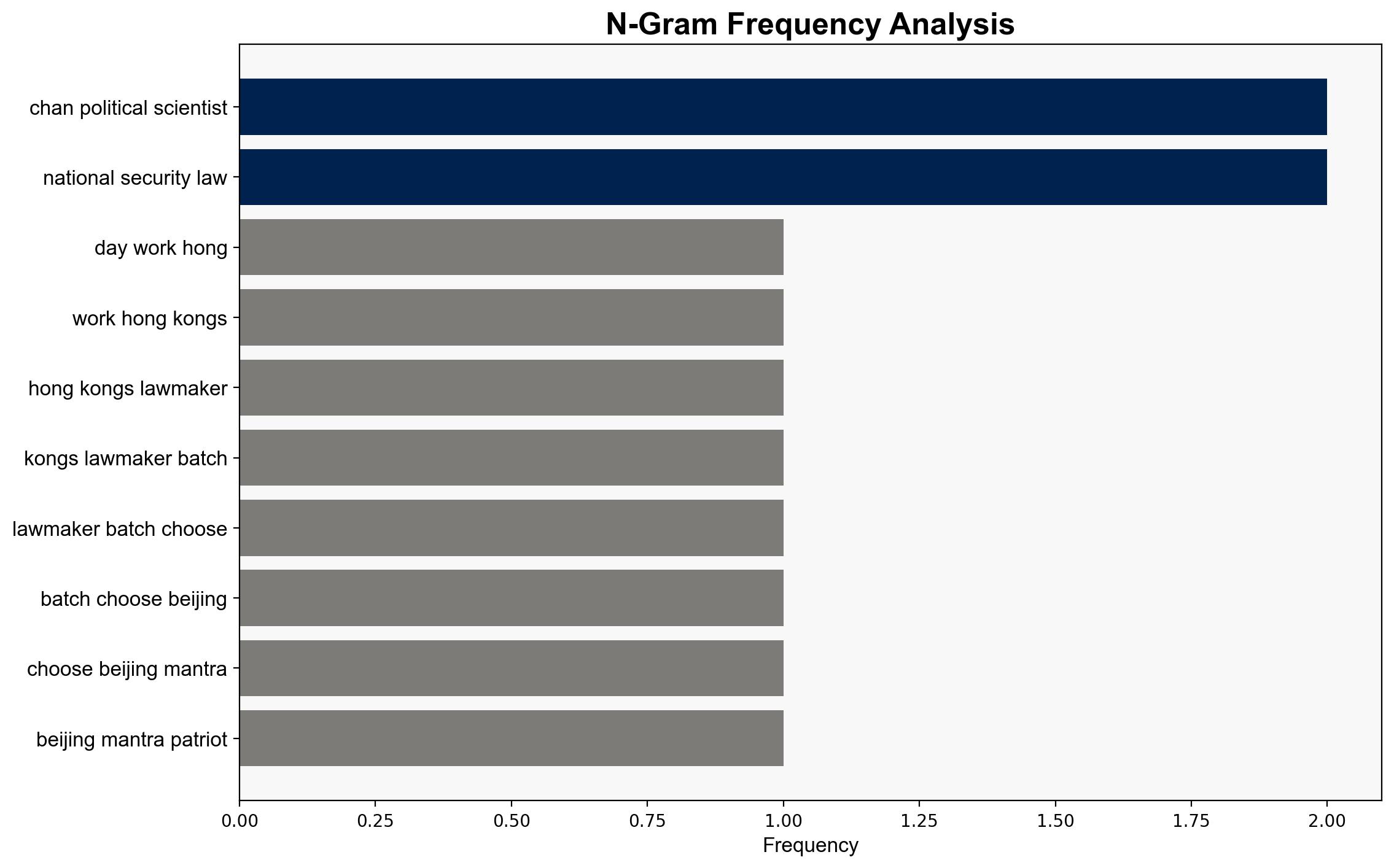Hong Kong legislature now an echo chamber four years after shake-up – Digital Journal
Published on: 2025-11-03
Intelligence Report: Hong Kong legislature now an echo chamber four years after shake-up – Digital Journal
1. BLUF (Bottom Line Up Front)
The Hong Kong legislature has transformed into a largely homogeneous body, potentially stifling political diversity and dissent. This report evaluates the hypothesis that the legislative changes were designed to ensure political stability versus the hypothesis that they were intended to suppress democratic expression. The analysis suggests with moderate confidence that the primary intent was to maintain stability and control, given the historical context and recent legislative actions. Recommended actions include monitoring legislative developments and engaging in diplomatic dialogues to encourage political pluralism.
2. Competing Hypotheses
1. **Hypothesis A**: The legislative changes in Hong Kong were primarily intended to ensure political stability and prevent unrest.
2. **Hypothesis B**: The changes were designed to suppress democratic expression and consolidate power under Beijing’s influence.
Using ACH 2.0, Hypothesis A is moderately supported by the historical context of protests and the emphasis on “patriots” in governance. Hypothesis B is supported by the reduction in political diversity and the imposition of high nomination thresholds, but lacks direct evidence of intent to suppress democracy beyond maintaining control.
3. Key Assumptions and Red Flags
– **Assumptions**: It is assumed that Beijing’s primary motivation is stability rather than suppression of democracy. Another assumption is that the legislative changes are a direct response to past protests.
– **Red Flags**: The absence of dissenting voices in the legislature and the low voter turnout could indicate public disengagement or dissatisfaction. The lack of interviews with departing lawmakers may suggest reluctance to speak freely.
– **Blind Spots**: Limited insight into Beijing’s internal decision-making processes and potential long-term strategies.
4. Implications and Strategic Risks
The current legislative environment may lead to reduced governmental accountability and transparency, potentially increasing public dissatisfaction. This could escalate into renewed protests or international criticism. Economically, a perception of instability might deter foreign investment. Geopolitically, this situation could strain Hong Kong’s relations with Western democracies advocating for political freedoms.
5. Recommendations and Outlook
- Engage in diplomatic efforts to encourage political inclusivity and dialogue in Hong Kong.
- Monitor legislative developments for signs of increased authoritarian measures.
- Scenario Projections:
- Best Case: Gradual reintroduction of diverse political voices leading to increased stability and international confidence.
- Worst Case: Heightened unrest and international sanctions due to perceived suppression of democratic processes.
- Most Likely: Continued political control with periodic minor protests and international criticism.
6. Key Individuals and Entities
– Tik Chi-yuen
– Kenneth Chan
– John Lee
– Lo Wai-kwok
– Andrew Leung
7. Thematic Tags
national security threats, political stability, regional focus, governance, democracy suppression




